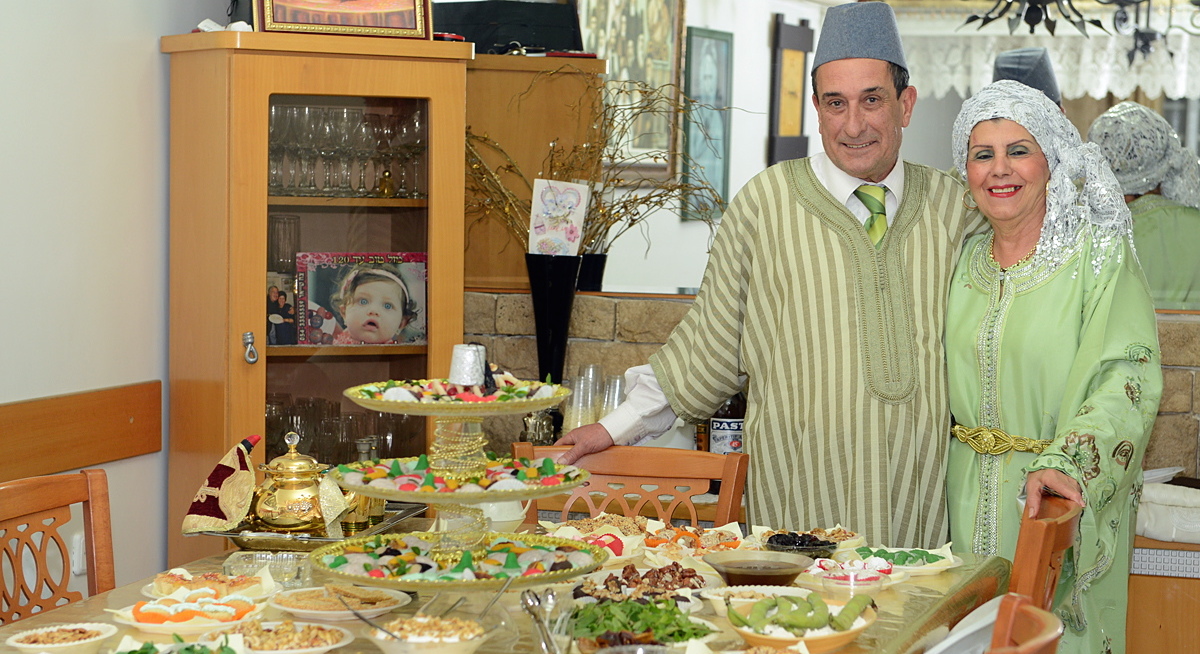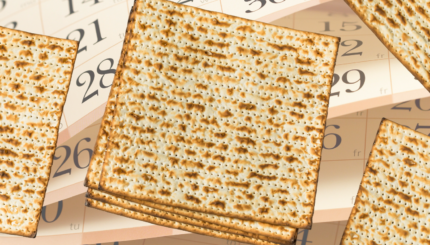Mimouna: A Post-Passover Celebration
An exuberant Sephardic custom whose origins are the subject of debate
Counting the Omer
The days between Passover and Shavuot are considered a time of mourning.
Hol Hamoed: The Intermediate Days of Passover
Although they are not full festivals, they are still holy relative to ordinary days.
How to Greet People on Passover
Happy Passover is always acceptable, but here are a few traditional greetings — in Hebrew, Yiddish and Ladino — to try out over the holiday.

Passover and Easter
Both celebrate spring and hope, though there are major differences between them also.
Next Torah Portion
Summary
This reading includes the biblical commandment to consecrate the first-born males of the flock to God. It then turns to the commandment to observe three pilgrimage festivals — Passover, Shavuot and Sukkot, and enumerates the laws prohibiting the consumption of leavened products on Passover.
Passover Day 8 Readings
Torah Reading
Deuteronomy 15:19-16:17; Numbers 28:19-25
Haftarah
Isaiah 10:32-12:6
Featured Commentary
You Shall Be Joyful
The Torah seems to command us to be happy, but are our feelings within our control?
Kaddish Minyan With Rabbi Rachel Isaacs (Mondays)
Hosted by: My Jewish Learning
Recharge Now
Our weekly Shabbat newsletter, Recharge, features a thoughtful, timely essay to enrich your Shabbat. Here are a few of our recent pieces:
Season of Uncertainty
Why should the Omer, a period of harvesting a staple crop, have become a time of mourning?
The Life Force of Liberation
Each act of creativity is a direct challenge to the forces of death and despair.
Singing God’s Song
Brooding over a psalmist’s question in the face of death.
MORE from MY JEWISH LEARNING
Kosher Details: Waiting Between Meals
How much time is required between eating meat and dairy?
9 Things You Didn’t Know About Passover
Why Israelis have just one seder, how Gibraltar does haroset and other curiosities of this 8-day holiday.
How Coca-Cola Became Kosher
While the iconic soft drink has been on the market since 1886, only since 1935 has it been certified kosher, including for Passover.
Are Non-Dairy Milks Kosher for Passover?
Alternative milk product pose a number of unique considerations for Passover consumption.















